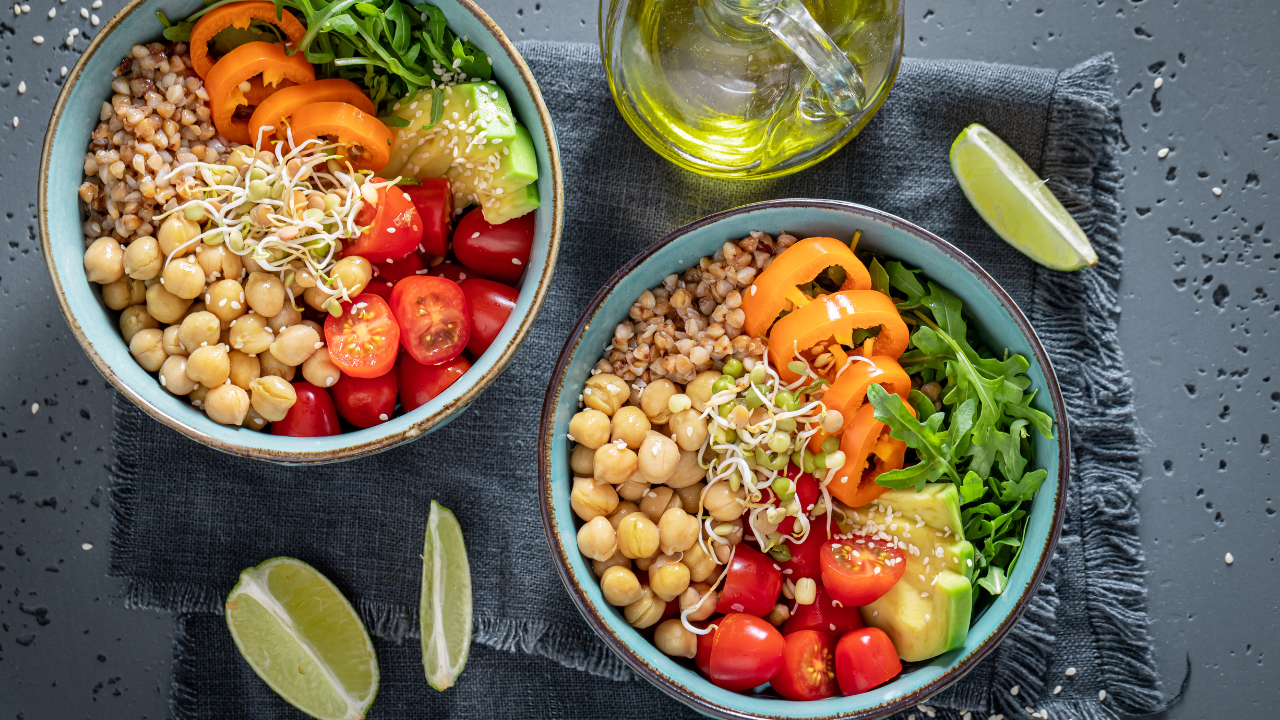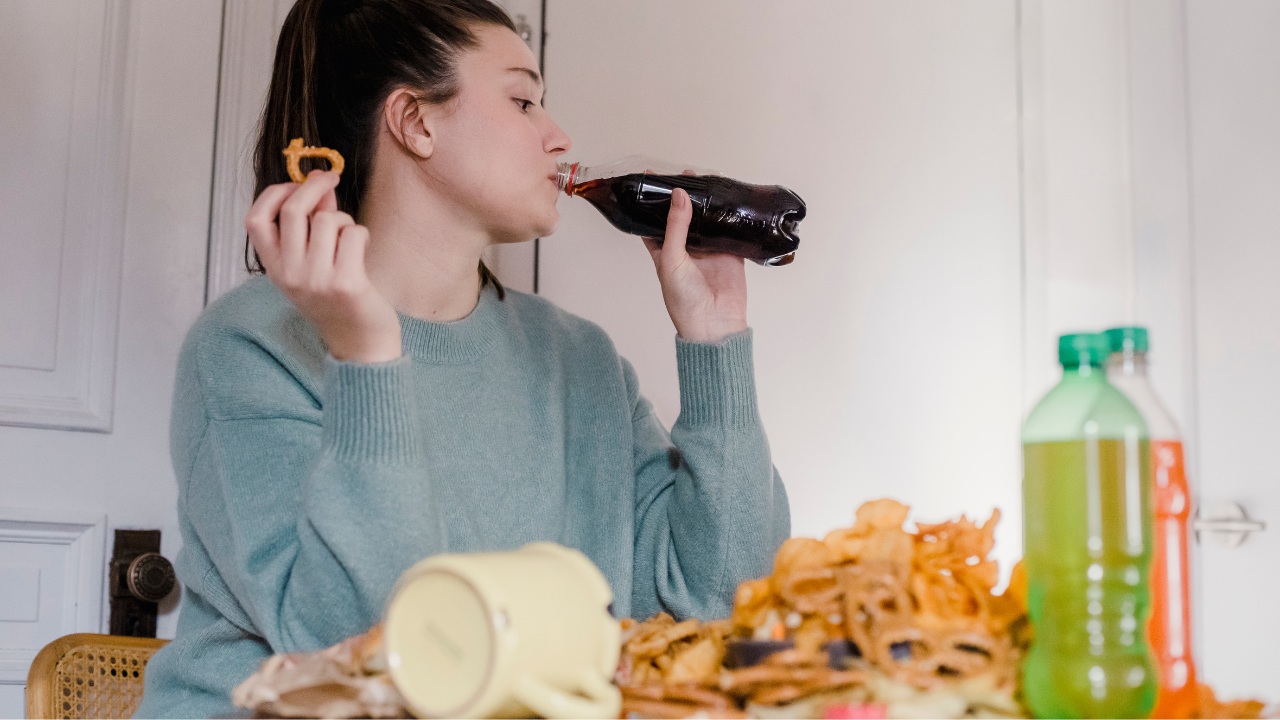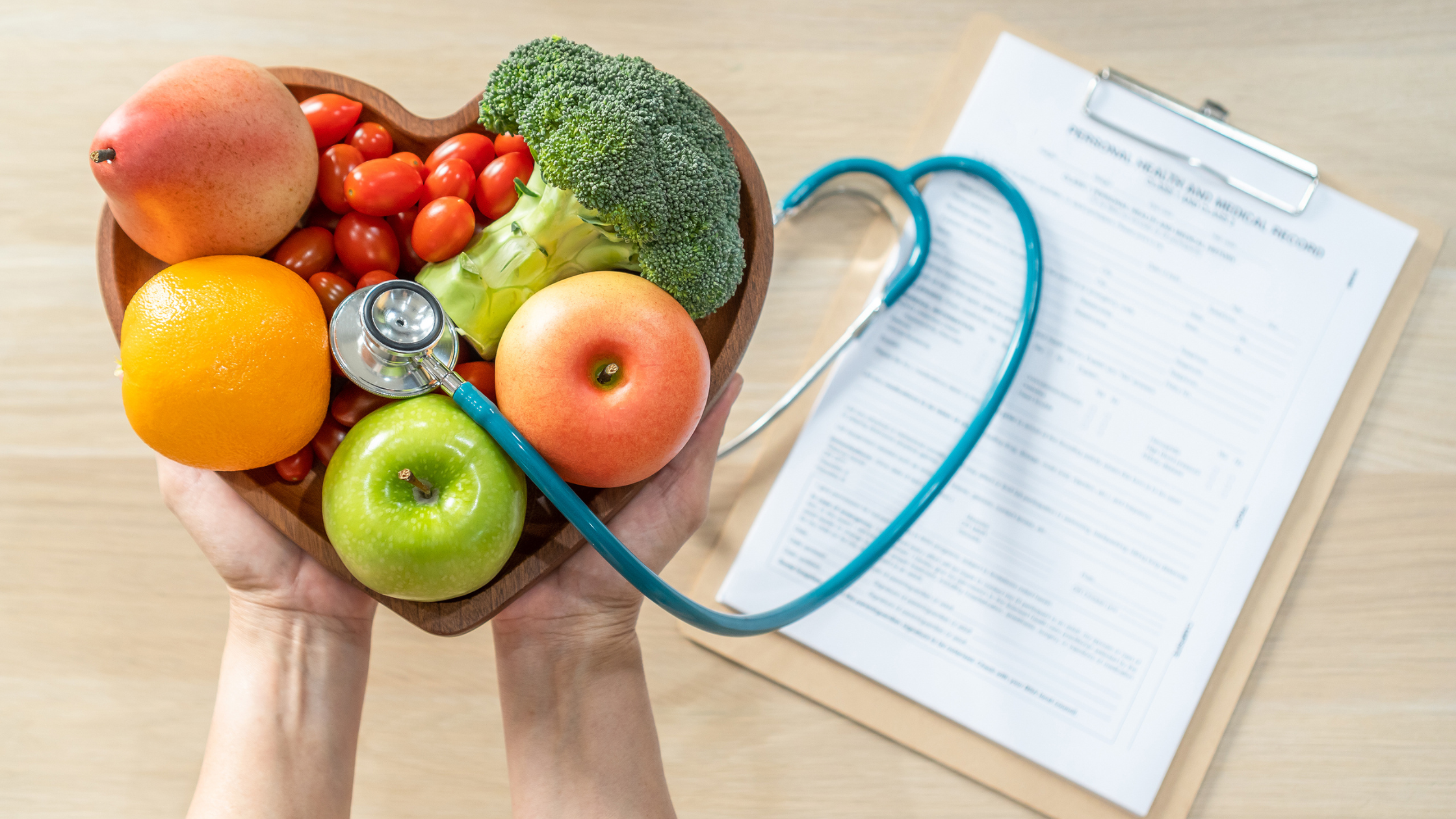How Intuitive Eating Can Improve Your Health
You may have heard before that the anti-diet movement, including Intuitive Eating and HAES (Health at Every Size), just means eating whatever you want whenever you want it. Or maybe you have heard that Intuitive Eating is just a form of “giving up” when diets don’t work for you. This could not be further from the truth! Anti-diet is not synonymous with anti-health.
If you’re new here, hello and welcome! My name is Hannah and I am a non-diet dietitian here to help you improve your relationship with your food and finally find food freedom.
First things first - diets don’t work
We have been led to believe that being on a diet and trying to lose weight is the best thing we can do for our health. In fact, this is what I was taught in school to become a dietitian and this is how I practiced during the first couple years as a registered dietitian. I thought that I was helping people by telling them they should lose weight to improve their health. I did not realize that I was doing more harm than good.
As I became a more seasoned dietitian, I began diving into Intuitive Eating and HAES, which drastically changed the way that I practice. It took some time for me to grasp what Intuitive Eating and HAES are because they are so counter-cultural. I had to overcome my own internal bias and I am still learning more and more every day.
Health is not a size
The problem with diets is that they are based on the pursuit of thinness, not health. And health is not a size. You can’t assess an individual’s health based on their appearance or size alone.
Just because a diet may result in weight loss, this does not necessarily equate to improved health in the long-term. Plus, we know that weight loss as a result of dieting often results in weight regain. And yo-yo dieting and weight cycling has been proven to be more harmful than just maintaining a higher weight over a period of time.
Dieting impacts our mental health
Diets also tend to negatively impact our mental health. Feelings of shame and guilt occur when we “fail” a diet, even though the diet was set up for failure to begin with. Our relationship with food is often impacted and many chronic dieters can no longer trust their body’s internal wisdom to make empowered food choices.
So if Intuitive Eating isn’t a diet, what is it?
Intuitive Eating is an anti-diet approach to building a better relationship with food. It teaches you how to find satisfaction in food choices. It is a fight against diet culture and the diet mentality.
Making peace with food and having unconditional permission to eat is often misunderstood. While you could eat donuts and pizza 24/7, as you become more attuned to your interoceptive awareness, you will notice that it doesn't feel too good to eat that way all the time. As you make peace with food and allow frequent exposure, these "forbidden food" won't seem so tempting and you are less likely to experience "last supper" style eating.
Intuitive Eating is also more than just eating when you are hungry and stopping when you feel full. There are many moving pieces to hunger and fullness.
Are you stuck in a diet mentality that makes you think you should feel full when you actually aren't?
Have you accepted your body shape or are you convincing yourself that you are full so that you can shrink your body?
Are you feeling physiological hunger or using food as a way to numb emotions?
Have you "shut down" your hunger and fullness cues by years of fad dieting?
Becoming an intuitive eater requires a weight-neutral approach.
Focusing on the number on the scale (an external process) will make it very difficult to tune in to your internal hunger and fullness cues.
You may gain weight, lose weight, or maintain the same weight as you find food freedom. Your body is going to want to settle at its set point weight and it will fight to get you there (this is why diets don't work - your biology is trying to protect you).
@dietitianhannah Intuitive eating goes far beyond intuition. #intuitiveeating #intuitiveeater #intuitiveeatingtips #dietitianhannah #dietitiansoftiktok #antidietdietitian #nondietdietitian #dietculture #gentlenutrition ♬ original sound - Dietitian Hannah
Your weight truly is not a very important determinant of your health. It is much more important to focus on health-promoting behavior changes and letting your weight be a side effect of this.
Honor your health with gentle nutrition
Intuitive Eating is not a diet, so it does not have any rules. It is based on 10 principles, one of them being honoring your health through gentle nutrition.
Gentle nutrition is the piece of Intuitive Eating that is often forgotten by critics saying that Intuitive Eating is just eating “whatever, whenever”. That would not feel very good! It is encouraged to apply nutrition principles such as eating fruits and vegetables and drinking water, but to do it in a way that isn’t rooted in diet culture.
Remember that you don’t have to eat perfectly to be healthy. You will not suddenly get a nutrient deficiency or become unhealthy, from one snack, one meal, or one day of eating. It’s what you eat consistently over time that matters.
How Intuitive Eating can improve your health
Intuitive Eating promotes equal care and respect for all bodies
An anti-diet approach accepts and respects the inherent diversity of body shapes and sizes. Intuitive Eating rejects the pathologizing of specific sizes/weights. Again, you can’t assess an individual’s health based on their appearance or size alone. Weight stigma and weight bias can lead to increased stress and result in individuals not seeking out health care due to being mistreated as a result of their weight.
Intuitive Eating has a focus on health promoting behavior changes
Your weight is not a behavior. It is an outcome of your behaviors. When you focus on health promoting behavior changes, such as adding fruits and vegetables, eating consistently, finding joyful movement, etc. your weight will reflect these changes. It may result in weight loss, or it may not.
It is important to be accepting and non-judgmental of whatever happens to the number on the scale. You don’t have much control over your weight, but you do have much more control over your nutrition and exercise related behavior changes.
@dietitianhannah Replying to @denverboudoir food freedom ≠ eating all the things all the time #intuitiveeating #gentlenutrition #foodfreedom #ditchthediet #dietculture #dietitiansoftiktok #dietitianhannah ♬ original sound - Dietitian Hannah
Intuitive Eating can increase your energy levels
When you finally start to eat the amount of food and types of foods that your body actually needs, you will find that you have more energy for other aspects of your life. Diets are draining both physically and mentally. They leave you undernourished and feeling inadequate.
Intuitive Eating can improve physical health measures
Intuitive eating has been shown to improve multiple measures of health, including decreased cholesterol levels, decreased blood pressure, increased physical activity, improved eating behaviors, increased self-esteem, and decreased body dissatisfaction. This does not get talked about enough!
Intuitive Eating can help you to develop a better relationship with exercise
Intuitive Eating encourages viewing exercise as a form of self-care and no longer as a means to burn off a certain number of calories or shrink yourself. Intuitively exercising means that you only do the exercise that you enjoy and you don’t feel guilty when you take a rest day.
Intuitive Eating can improve your digestion
Stress can really take a toll on your gut health. This includes the stress and anxiety that often accompany dieting. When you ditch the diets and make peace with food, you may find that gastrointestinal symptoms improve as your food stress is reduced.
Bottom line - is intuitive eating healthy?
Unlike dieting, Intuitive Eating is not measured by how many pounds or inches you lost. In fact, weighing yourself can actually stand in the way of becoming an intuitive eater.
When you first start Intuitive Eating, it can seem like a scary process because you don’t have a number to equate to your success. But over time, you will notice changes in many areas of your health, including physical and emotional health.
Looking for more support on your intuitive eating journey? We’d love to guide you inside The Nutrition Reboot Membership.































